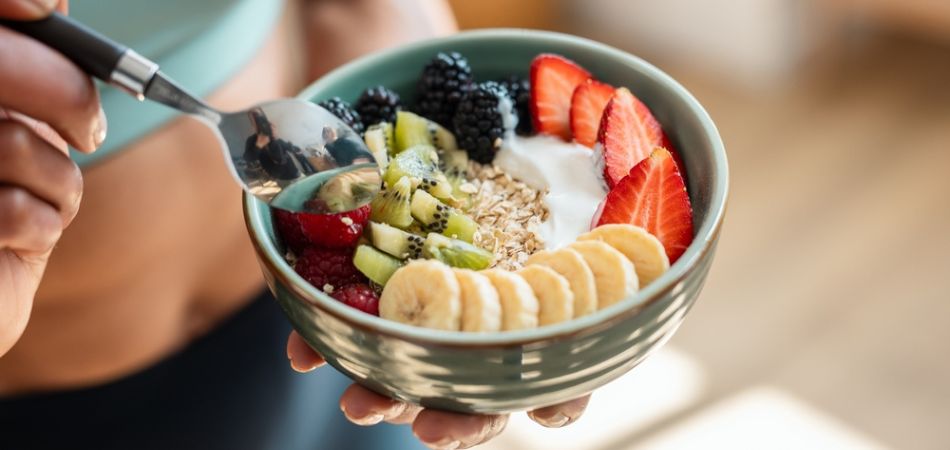Last Updated:
September 18th, 2025
In a world where messages and videos about getting better bombard our waking eyes and our plans for tomorrow, the pursuit of “healthy habits” may be more dangerous than it first appears.
Millions of quick-fix solutions await the next press of your fingertips on your keyboard: promises of healing, strength, peace and control. For someone in recovery or teetering on the edge of addiction, these messages may become wellsprings of hope. Yet what begins as discipline or self-care can morph into fixation, and soon, one obsession silently gives way to another.
What is cross addiction, and how does it evolve?
Cross addiction, sometimes also called “addiction transfer,” is a phenomenon where a person shifts their addiction from one substance or behaviour to another. The development of a new addiction may form while a person already has an alcohol or substance use disorder (SUD), or it may form after the first addiction has been successfully recovered from.
In the realm of addiction recovery, cross-addiction treatment will generally examine and aim to resolve simultaneous addictions to harmful and mind-altering substances. However, as you may well be able to imagine, recent years have seen stark increases in the number of people addicted to activities other than drugs, like gambling, video games, social media and pornography. As an example, 2019 research found that 11% of surveyed men agreed with the statement “I am addicted to pornography,” and more people than ever seek treatment to escape from it.
While we may be able to see how addictions to porn or gambling are more directly problematic, there is also a grey area of addictive behaviours in activities that are less directly harmful. Underneath the development of these addictions are the same drivers, reward cycles and emotional avoidances that are linked to substance addiction.
In today’s hyper-optimised culture of wellness, self-discipline and productivity, it is no wonder that people are struggling with an addicted mind. Yet help is out there.
Are some “healthy habits” common in cross addictions?
Of course, having the motivation to develop and commit to healthy routines is a good thing. We will always hope a person is as physically and mentally strong and healthy as they can be.
Yet we are finding that there are certain routines frequently found in cross addictions, especially those that involve a high degree of control, repetition and physical change. Some common examples include:
- Excessive exercise: A person may become hypercommitted to exercising and working out to release something emotionally.
- Harsh dietary control: You might see someone focused on clean eating or meticulous calorie counting.
- Workaholism: Some people in cross addiction pour every ounce of energy into productivity to avoid mental discomfort or to stop thinking so much.
- Overuse of wellness tech or apps: There are more wellness apps than ever now, which might lead someone to obsess over stats and metrics or develop a “tunnel vision” into productivity.
We would like to state that in every one of these examples, there are likely to be some positive effects on a person’s life.
- Exercising is good, as long as you aren’t doing it while hurting.
- Dieting can be good if it isn’t leading to an unhealthy relationship with food.
- Workaholism means you’re earning more, which is great, if you aren’t heading towards burnout.
- Wellness apps can be wonderful, so long as you don’t grow addicted to your phone.
We observe that there is a dark side to each lightness in these activities, a flip side to the coin in every compulsion, and we hope the negative aspects of each one do not impair your life, whether you’re in early recovery or you’re fully healed.
Why healthy habits are a prime target today
There seems to be an almost unspoken but omnipotent feeling that we live in an age where wellness is everywhere. Seemingly every time we open our phone, some form of messaging is telling us to be more productive, to work on ourselves and to optimise our downtime. In these moments, it is not difficult to succumb to feelings of anxiety and lower self-esteem.
So a lot of us decide, “Okay, now I’ll do a workout” or “Fine, I’ll skip this meal,” and unlike substance use, a lot of these behaviours earn praise. From the outside, they embody control and determination, but underneath, they’re often driven by the same compulsive need to numb a feeling or to escape, though we may not know where to.
For many in recovery, replacing one addiction with another feels like growth, when it may be the case that the addiction is just wearing a more beautiful mask. If health or wellness becomes an obsession and balance is supplanted by compulsion, we may realise that we don’t, in fact, have much control.
Signs that a healthy habit may be part of cross addiction
Of course, not every new interest or routine is a red flag for cross addiction, but when the activity dominates your time, self-worth, or your relationships, your brain may still be seeking the relief it used to find in more harmful addictions.
Ask yourself:
- Do I feel anxious or irritable when I miss this activity, even once?
- Have friends or loved ones expressed concern, or have I started hiding how often I do it?
- Is this habit replacing things I used to enjoy or people I used to connect with?
- Do I use it to escape from difficult feelings, thoughts, or memories?
A cross addiction to a healthy activity will feel justifiable, but if it’s a deep compulsion that’s holding you back in other areas of your life, you may benefit from more balance and moderation.
Are some people more likely to form these habits than others?
If you’re questioning whether you’re more likely than someone else to fall into cross addiction, there may be some general traits or circumstances you can check for. Broadly speaking, you may be more susceptible if you:
- Have a personal or family history of addiction
- Struggle with anxiety, depression, or trauma-related conditions
- Rely heavily on external validation or routine to feel safe
- Have constantly felt like you need to “complete” a new project, otherwise you become uncomfortable
Is it still wellness, or something else?
The outward appearance of health can easily mask what’s really going on underneath. There are a multitude of benefits in activities like exercise, food choices and mindfulness.
But be aware, if your intention shifts from self-care to self-punishment, from recreation to obsession, the label of “wellness” may be hiding deleterious effects. If your compulsive behaviours are tied to underlying mental health challenges, a dual diagnosis approach may be needed to treat both addiction and the psychological factors driving it.
Ultimately, you will need to decide if your pursuit of wellness is becoming a vessel for unresolved pain or fear. If you are caught in a new cycle that mimics addiction in every way but name, you may want to increase your diligence on the formation of addictive behaviours.
Where can I find help for my addiction?
If you’ve overcome a substance addiction, or are in the process of doing so, it’s natural to seek new ways to feel in control again. But sometimes, habits that seem positive on the surface begin to unlock deeper compulsions, such as disordered eating or the misuse of medication.
At Sanctuary Lodge, we specialise in tailored addiction treatment that also addresses the deeper drivers behind unhealthy behaviours, including trauma, perfectionism, and control. Whether your struggle stems from a past addiction or is beginning to take new shape, our evidence-based therapies are in place to help you reclaim balance.
You don’t have to wait until things get worse before seeking help. Reach out today and start building a life that’s not just healthy on the outside, but deeply healthy on the inside too.
(Click here to see works cited)
- Grubbs JB, Kraus SW, Perry SL. Self-reported addiction to pornography in a nationally representative sample: The roles of use habits, religiousness, and moral incongruence. J Behav Addict. 2019 Mar 1;8(1):88-93. doi: 10.1556/2006.7.2018.134. Epub 2019 Jan 11. PMID: 30632378; PMCID: PMC7044607.





